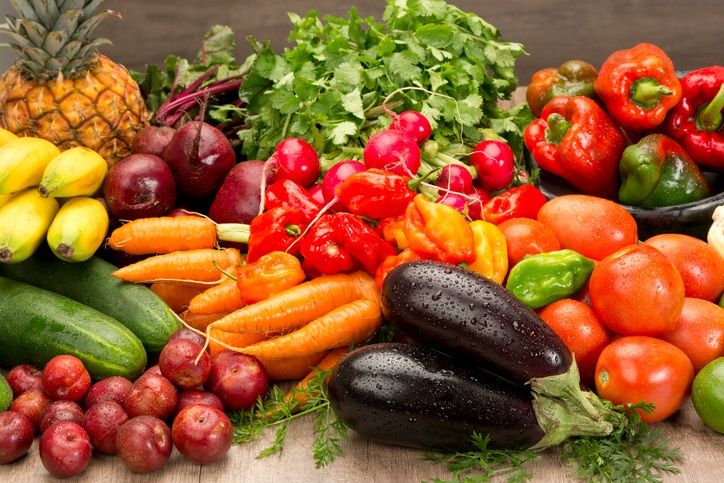

Share
25th February 2017
08:13am GMT

 According to The Guardian, a study by scientists at Imperial College London found that consuming ten portions of fruit and veg per day was a much healthier approach and could help prevent up to 7.8 million premature deaths worldwide.
It was found that eating up to 800g of fruit and vegetables (approximately 10 portions) per day, for example, could lead to a 24% reduced risk of heart disease, a 33% reduced risk of stroke, a 28% reduced risk of cardiovascular disease, a 13% reduced risk of total cancer, and a 31% reduction in premature deaths. Pretty revelatory figures indeed.
Some fruit and veg were found – apples, pears, spinach and lettuce, for example – to be more proficient at preventing heart disease and stroke, while others – green beans, peppers and carrots – were better at reducing the risk of cancer.
Commenting on the study, Dr Dagfinn Aune, lead author of the research, said: “We wanted to investigate how much fruit and vegetables you need to eat to gain the maximum protection against disease, and premature death.
“Our results suggest that although five portions of fruit and vegetables is good, 10 a day is even better.
According to The Guardian, a study by scientists at Imperial College London found that consuming ten portions of fruit and veg per day was a much healthier approach and could help prevent up to 7.8 million premature deaths worldwide.
It was found that eating up to 800g of fruit and vegetables (approximately 10 portions) per day, for example, could lead to a 24% reduced risk of heart disease, a 33% reduced risk of stroke, a 28% reduced risk of cardiovascular disease, a 13% reduced risk of total cancer, and a 31% reduction in premature deaths. Pretty revelatory figures indeed.
Some fruit and veg were found – apples, pears, spinach and lettuce, for example – to be more proficient at preventing heart disease and stroke, while others – green beans, peppers and carrots – were better at reducing the risk of cancer.
Commenting on the study, Dr Dagfinn Aune, lead author of the research, said: “We wanted to investigate how much fruit and vegetables you need to eat to gain the maximum protection against disease, and premature death.
“Our results suggest that although five portions of fruit and vegetables is good, 10 a day is even better.
 “Fruit and vegetables have been shown to reduce cholesterol levels, blood pressure, and to boost the health of our blood vessels and immune system,” Aune added.
“This may be due to the complex network of nutrients they hold. For instance they contain many antioxidants, which may reduce DNA damage, and lead to a reduction in cancer risk.”
Food for thought the next time you’re filling up your shopping basket.
“Fruit and vegetables have been shown to reduce cholesterol levels, blood pressure, and to boost the health of our blood vessels and immune system,” Aune added.
“This may be due to the complex network of nutrients they hold. For instance they contain many antioxidants, which may reduce DNA damage, and lead to a reduction in cancer risk.”
Food for thought the next time you’re filling up your shopping basket.Explore more on these topics: